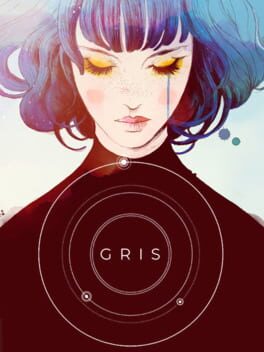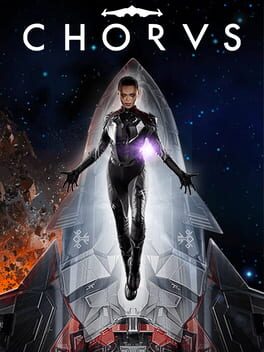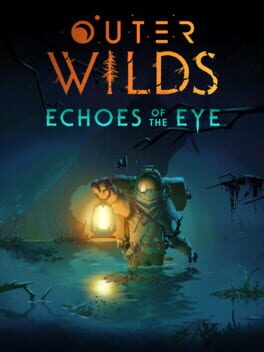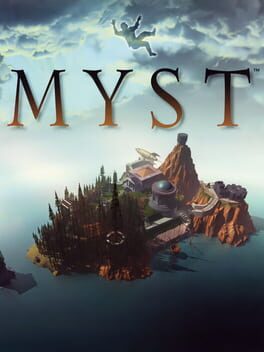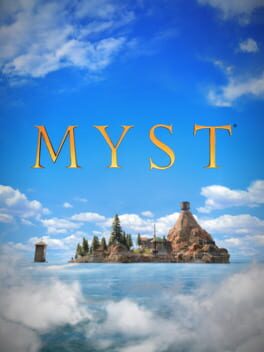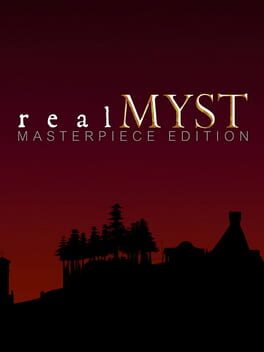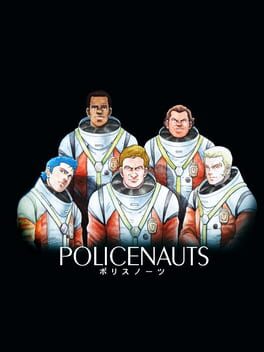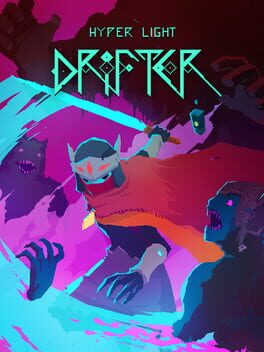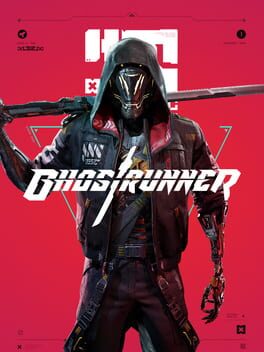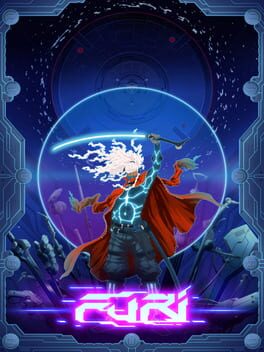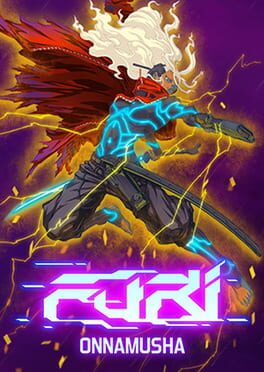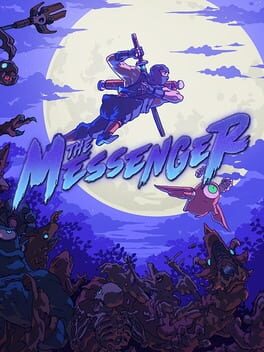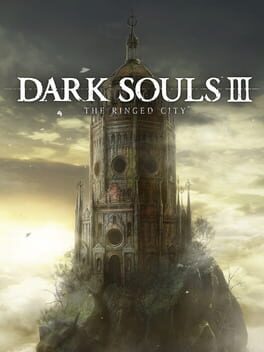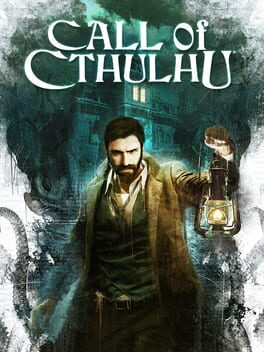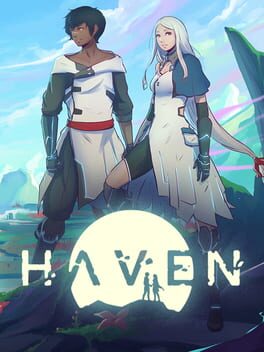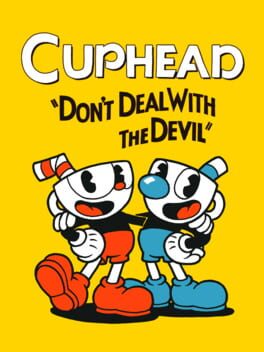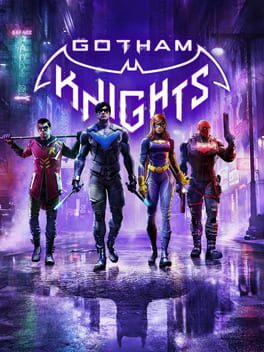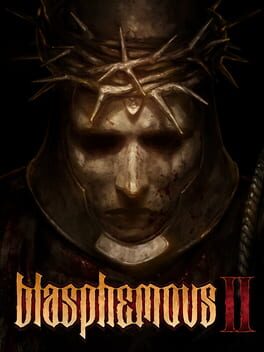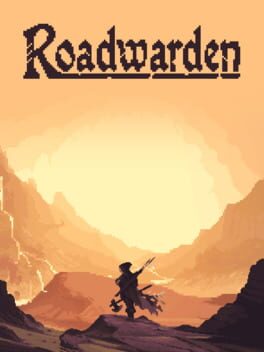Games Played - 2023
Games played in 2023, displayed in the order in which they were finished (ascending).
33 Games
1
Cute little game. Great music and visuals. A little pretentious, though. Still, gotta support the tios in Spain.
My platonic ideal of a video game; an astounding achievement of design and artistry. Every facet of the game is handled with mastodontic reverence and consideration of the game's experiential goals for the player. Unlike any game I've ever experienced, Outer Wilds weaponizes hindsight so strongly that it feels personal, as if completion equates to the denial of pleasures in life you cannot revert to living without; you will evangelize of your own volition to anyone who will listen, just to taste again the sweet condensation of the first-time-playthrough experience vicariously through those you convert. I pity those who have not yet played this game, but I grieve for those of us who have, and won't be able to play it the same way ever again. Outer Wilds is more than just a video game; it's a revelation.
3
What if Arkham combat was way better and only about fighting and also Chinese. Hell yeah.
4
The game constantly threatens to bore you with exposition and lore-dumping, all delivered via some seriously uninspired writing and vocal direction.
An admittedly interesting use of audio and mental illness as a game mechanic cannot make up for some of the most horrendously pedestrian design choices made throughout the rest of the game. This is the anti-Devil May Cry 5.
An unfortunately unbalanced game. Visually, the game looks incredible; until this game, I'd never seen a 3D metroidvania that I didn't think would look better in 2D. Samus is animated and designed perfectly, with just the right amount of calm-and-collected professionalism I'd expect from a bounty hunter, but with a human personality seeping through as she finds herself in increasingly dangerous situations. The drip-fed nature of the upgrades feels perfectly paced, and each upgrade meaningfully enhances your movement and combat abilities in intuitive ways.
The problem is that Metroid still feels behind most of the games it inspired; the upgrades might enhance the experience more than other metroidvanias, but the controls used to engage with those upgrades feel remarkably unintuitive in comparison; the game might be one of the most visually impressive games on the Switch, but also fails to perform consistently on the hardware (especially during key moments, such as boss fights, where specific button inputs and timing are necessary). The bigger problem, however, is the cryptic nature of progression. Hiding the only way forward through unclear means, such as revisiting an old part of the gigantic, labyrinthine map you're likely to have forgotten, or shooting an inconspicuous block at the end of a hallway might be "classic Metroid," but it's also "very frustrating." The best games nudge the player in the right direction so subtly that they don't even notice, but Dread is obsessed with not giving fans an excuse to call the game "too casual".
The problem is that Metroid still feels behind most of the games it inspired; the upgrades might enhance the experience more than other metroidvanias, but the controls used to engage with those upgrades feel remarkably unintuitive in comparison; the game might be one of the most visually impressive games on the Switch, but also fails to perform consistently on the hardware (especially during key moments, such as boss fights, where specific button inputs and timing are necessary). The bigger problem, however, is the cryptic nature of progression. Hiding the only way forward through unclear means, such as revisiting an old part of the gigantic, labyrinthine map you're likely to have forgotten, or shooting an inconspicuous block at the end of a hallway might be "classic Metroid," but it's also "very frustrating." The best games nudge the player in the right direction so subtly that they don't even notice, but Dread is obsessed with not giving fans an excuse to call the game "too casual".
This is a DLC to Outer Wilds the same way Majora's Mask was to Ocarina of Time; that is to say, it isn't. Reasonable minds will differ on whether this is artistically superior to the base game or not; I, for one, believe Outer Wilds to be the more consistent game in terms of quality, where Echoes has larger peaks and valleys; while I didn't out-right dislike anything about Outer Wilds, there are things I dislike about this game. Conversely, though, there's nothing in Outer Wilds I like more than what I like about Echoes. What's important here is that, whatever Mobius needed to accomplish to solidify their design credentials, they achieved with a seemingly effortless confidence. This smaller-scale, stygian successor to the design philosophies of the base game manages to somehow improve the overall Outer Wilds experience.
8
Myst falls into the category of great games that, with a good remake, would easily be considered classics. I found myself immediately gripped by the world, scouring the environments for any potential clue, reading personal journal entries and taking actual, physical notes with a pen and paper of what I considered to be important. When I finally came across the critical information I lacked, I often almost instantly formed a hypothesis based on it. And the game tends to earn this kind of engagement, because the puzzles are simply fantastic. Both mechanically and internally, they make perfect sense and require the player to fill in the logical leaps based on available information. It never condescends, but neither does it feel esoteric.
Beyond mechanics, the game has an undeniable 90's charm to it, with cheesy voice (over-)acting and pre-recorded live-action cutscenes. Considering how antiquated it is, it's all surprisingly engaging, and the game (rightfully) lacks any kind of shame in it's story, presentation and performances; it plays everything absolutely straight, and I adore that kind of earnestness in any creative endeavor. These story moments never overstay their welcome, in fact most can simply be ignored, but I was surprised at how compelling it became once I understood how this "universe" works internally. All of this is rounded off by some surprisingly great music, which plays at key moments in the game to cap-off puzzle development; it has a style so off-the-wall, so 90's, you likely haven't seen much anything like it since, giving Myst a truly unique identity.
I didn't love all of it, though.
Myst has all pre-rendered backgrounds which have aged about as well as you'd expect from an early-90's game. This is par for the course with point-and-click games, and it never looks ugly (in fact it's quite the contrary), but the trouble comes from two distinct but non-overlapping sources:
1) the lack of angles from which to view an area or object. I can say that at least one stage is made more difficult simply due to the static camera position, which makes basic navigation of the stage cumbersome; the lack of animation in the backgrounds also makes the consequences of your interaction with the world challenging to discern;
and
2) the non-linearity of the world. While I would normally commend a game for giving the player total agency in regards to which order they tackle the game's content, if you don't carefully consider and balance the experience properly, players can very easily get stuck, or have an inverse difficulty curve, leaving a poor (and flawed) impression of the game's consistency. In Myst there's a clear (ideal) order to play the stages. Not just according to difficulty, (I actually think the easiest stage should be second) but also according to available information. The hardest puzzle in the game can be brute-force'd, but the critical information necessary to understand what the puzzle is even asking is found in another level.
I would normally have no problem with this. But I also would normally have the ability to backtrack and visit another stage should I get stuck. This is a major problem for Myst, because there's no way to escape the stage you're on, except for solving the puzzle. This isn't just a mechanical choice, either; there's a lore explanation that prevents backtracking, and it seriously hurts the game's progression. Luckily, this sort of thing can be fixed by having a friend tell you, "Hey, do [X] stage last. Trust me."
Myst has some fatal flaws that hold it back from greatness, but if you're trying to scratch the puzzle-solving itch of Outer Wilds, or just have a weekend to spare, there are worse ways to pass the time than this.
Edit: After having played the two remakes, I have concluded the best way to enjoy Myst is through the 2014 realMyst: Masterpiece Edition version. I don't love every change they made, but it's probably the best way to enjoy the game now.
Beyond mechanics, the game has an undeniable 90's charm to it, with cheesy voice (over-)acting and pre-recorded live-action cutscenes. Considering how antiquated it is, it's all surprisingly engaging, and the game (rightfully) lacks any kind of shame in it's story, presentation and performances; it plays everything absolutely straight, and I adore that kind of earnestness in any creative endeavor. These story moments never overstay their welcome, in fact most can simply be ignored, but I was surprised at how compelling it became once I understood how this "universe" works internally. All of this is rounded off by some surprisingly great music, which plays at key moments in the game to cap-off puzzle development; it has a style so off-the-wall, so 90's, you likely haven't seen much anything like it since, giving Myst a truly unique identity.
I didn't love all of it, though.
Myst has all pre-rendered backgrounds which have aged about as well as you'd expect from an early-90's game. This is par for the course with point-and-click games, and it never looks ugly (in fact it's quite the contrary), but the trouble comes from two distinct but non-overlapping sources:
1) the lack of angles from which to view an area or object. I can say that at least one stage is made more difficult simply due to the static camera position, which makes basic navigation of the stage cumbersome; the lack of animation in the backgrounds also makes the consequences of your interaction with the world challenging to discern;
and
2) the non-linearity of the world. While I would normally commend a game for giving the player total agency in regards to which order they tackle the game's content, if you don't carefully consider and balance the experience properly, players can very easily get stuck, or have an inverse difficulty curve, leaving a poor (and flawed) impression of the game's consistency. In Myst there's a clear (ideal) order to play the stages. Not just according to difficulty, (I actually think the easiest stage should be second) but also according to available information. The hardest puzzle in the game can be brute-force'd, but the critical information necessary to understand what the puzzle is even asking is found in another level.
I would normally have no problem with this. But I also would normally have the ability to backtrack and visit another stage should I get stuck. This is a major problem for Myst, because there's no way to escape the stage you're on, except for solving the puzzle. This isn't just a mechanical choice, either; there's a lore explanation that prevents backtracking, and it seriously hurts the game's progression. Luckily, this sort of thing can be fixed by having a friend tell you, "Hey, do [X] stage last. Trust me."
Myst has some fatal flaws that hold it back from greatness, but if you're trying to scratch the puzzle-solving itch of Outer Wilds, or just have a weekend to spare, there are worse ways to pass the time than this.
Edit: After having played the two remakes, I have concluded the best way to enjoy Myst is through the 2014 realMyst: Masterpiece Edition version. I don't love every change they made, but it's probably the best way to enjoy the game now.
9
Myst is a great game, but this remake is too concerned with fixing what wasn't broken instead of what was (and still is). Being built for VR is a neat idea for the game, but if you don't play in VR, everything is much more cumbersome that it was in the original; actions aren't as quick as they should be, and there isn't enough visual adjustment for environments that were only ever conceptualized for viewing from one angle. Whatever visual clarity comes from playing with an adjustable camera is offset by the sluggishness of moving through the world and interacting with the environment. As flawed as the original is, I still think it's the better way to experience the game.
This remake fixes most of the issues in the original, to the point where this is probably the best version for newcomers to try. Even though I'm not a fan of some changes that were made, it's hard to complain about Myst being brought into the modern age.
The developer asks a question: what if the game not being fun is the point? Spec Ops is a pretty ballsy artistic gamble in the guise of an early-2010's dude-bro shooter, and while it isn't fun to play, it's mercifully short and delivers a story and visual experience that stands out amongst a horde of soulless black and grey and brown shooters.
12
Very fun game! Unconventionally conventional, I say. Policenauts wears its influences on its sleeve, unashamedly, and the result is something that feels like a celebration of its source material rather than a cynical rehash of familiar ideas. The game's premise alone is almost enough for me to call it an instant-classic: set in the future, humanity is finally on the brink of genuine space colonization. An elite set of police officers are chosen from across the globe to serve as the first (and exemplar) members of the Policenauts -- space cops, basically. The protagonist, Jonathan, is on a routine spacewalk when suddenly, his space suit detaches from the station, and he's lost to space for the next 25 years. Turns out, he was able to go into cryogenic sleep all that time, and when he wakes, everyone he knows -- his partner Ed, his (now ex-) wife, Lorainne -- they're all 25 years older, where he's the exact same. This is the context for the game's opening, and it's just so campy that I can't help but love it.
The game was equally capable of being funny as it was emotionally engaging, without one encroaching on the other's territory; within an hour of the game, I'd methodically inspected every item on the protagonists' desk, reading his melodramatic, boomer, man-out-of-time comments about how much the world has changed, how his bills are stacking up, and how no one knows how to do things "the old-fashioned way." It's equally effective as a world-building technique as it is hilariously over-dramatic. (I choose to read it as tongue-in-cheek.) Shortly thereafter, however, your ex-wife enters the room and suddenly the game is able to command your attention and have you take the events seriously, even though it was just making you laugh. It's a really astounding feat how many sensations the opening of the game is able to inspire.
There are some major turn-offs that some people won't be able to get over, such as the casual homophobia and sexism, or the dated controls (things a remake could easily solve, Konami) but for those of us who are willing to but up with it all, there's a fun 12~ hours of classic-Kojima storytelling and game design.
The game was equally capable of being funny as it was emotionally engaging, without one encroaching on the other's territory; within an hour of the game, I'd methodically inspected every item on the protagonists' desk, reading his melodramatic, boomer, man-out-of-time comments about how much the world has changed, how his bills are stacking up, and how no one knows how to do things "the old-fashioned way." It's equally effective as a world-building technique as it is hilariously over-dramatic. (I choose to read it as tongue-in-cheek.) Shortly thereafter, however, your ex-wife enters the room and suddenly the game is able to command your attention and have you take the events seriously, even though it was just making you laugh. It's a really astounding feat how many sensations the opening of the game is able to inspire.
There are some major turn-offs that some people won't be able to get over, such as the casual homophobia and sexism, or the dated controls (things a remake could easily solve, Konami) but for those of us who are willing to but up with it all, there's a fun 12~ hours of classic-Kojima storytelling and game design.
Couldn't get into this one. The controls make engaging with the game too tiresome.
Good music and sound design, but the controls can feel unresponsive and, while I enjoy the commitment to visual storytelling, the lack of text means that the game doesn't adequately explain its systems to the player.
15
Ghostrunner is some of the most immediately satisfying gameplay I've experienced in years. Despite the bugs and a general lack of polish, the gamefeel is simply unmatched. The story and voice acting are, for the most part, inoffensive and utilitarian. But you don't play for the story. You play it for the gameplay. I've not played a better platformer.
Clunky, slow, and just kind of simple. Metroidvanias might be plentiful today, but the passage of time with the passive average improvement of the genre has oblitered this game's appeal for me.
17
A fun bullet hell with some excellent music. My only complaints are that some bosses aren't as good as others, the dodge can feel a bit off, and you can't skip the walking sections between bosses. Other than that, I enjoyed this quite a bit.
Pretty fun moveset. The dodge feels more responsive than the vanilla version. If you liked the base game a lot, you'll love this.
19
Celeste is an supremely smart and fun 2D platformer. You have to understand that, coming from me, he who generally doesn't understand the appeal of 2D platformers, this means quite a bit. The game introduces one small concept, and slowly over the course of the level expands and rethinks that one element over, and over, and over again. It's so inventive in its game design. That being said, my general disinterest in 2D platformers precluded me from wanting to finish this game. Maybe I'll get back to it one day.
A cute game I played for like, an hour. Seems like it has a certain audience in mind, and that's great, but I'm not sure if I belong to it.
Not a new game, but replaying this after already having suffered through the learning curves makes it a lot more enjoyable. Play the DLC right after acquiring the Lord Vessel, then stop playing the game.
22
Since I now have Playstation+, I can abuse the chalice dungeons into giving me limitless Blood Echoes, meaning I have effectively no limits on my Blood Vials, which fixes my biggest issue with the game and makes for a much more enjoyable experience. I always lose steam after The One Reborn and Lady Maria respectively, though.
This single piece of DLC is the best thing in the entirety of Dark Souls III. Where the rest of the game seems to wallow in its nostalgia bait, The Ringed City feels like the only experience that tries to recontextualize older lore and locations in a way that feels genuinely new. Finally, they follow up on the biggest loose-end of Dark Souls. If you're following the story, this feels properly climactic as a send-off for the series. Bosses are pretty much all good, and the levels are tough but supremely interesting to explore.
Feels kinda cheap, but the story is good. Not sure if that's due to the strength of the original script, though.
25
Mega boring. A huge let down after Furi. Hilariously, I couldn't figure out why the main guy was such a pushover. Then I realized there's a correct and incorrect dialogue choice, and I was the pushover all along.
A HUGELY disappointing sequel. I couldn't even be bothered to finish this one.
What makes Breath of the Wild special and one of my favorite games of all time is the exploration. Exploring the world is in-and-of-itself enjoyable and rewarding.
What makes Breath of the Wild difficult to replay is everything else. The asinine armor upgrade system, weapon durability and combat simplicity, and the inconsistency of the main content (shrines and dungeons). When the world is no longer new to you, these other issues make the game truly difficult to stomach, and is the main reason the game continues to decline in my estimation. So you'd think with a sequel, they'd double down on what made the game so great that first time and resolve the glaring issues that plagued follow-up playthroughs, right?
Nope. Instead, Nintendo decides to try and shoe-horn the Breath of the Wild template into their older Zelda format, with a much higher emphasis on story, condescending accessibility, and linearity. Now, the story wasn't great in Breath, but it had the good sense to be almost entirely optional and mostly second-fiddle to the gameplay. In Tears of the Kingdom, I just wanted to play the game, but was forced to suffer through a linear, story-heavy section on boot-up, without even an options menu where I could change the voice acting language to something less ear-grating. Seriously, the English voice acting is abysmal. I played around with a few options, but ultimately decided on using the original Japanese, which I can't really judge because I don't know Japanese.
This opening section is essentially a replacement of the Great Plateau in meta-ludological terms, but with greater importance placed upon the story, and a far less compelling distribution vehicle. There's no "cutting down a tree to use as a make-shift bridge in order to cross a chasm" here. In its place is the contrived placement of logs and a pre-made sail you can utilize to create a boat. It feels less like you've found a solution to the problem and more like you found THE solution the developers wanted you to encounter. There are a few moments in the game that echo this experience for me.
The problem with this opening however, and the greater game at large, is not the gameplay. As much as I might not enjoy it, it's serviceable. It's everything else I dislike.
The story is generic and predictable, and receives far too much focus, relative to its quality. None of the issues, except for MAYBE weapon durability [debatably], were addressed. Armor upgrades are still tantamount to brainless fetch quests, combat is mostly unchanged in that it's shallow and lacking the quality-of-life features other games of its type employ -- such as the ability to swap enemies while targeting. I will say that the renewed emphasis on story lead to some much more interesting regional plots, and the decision to make them centered around characters we can interact with was far more compelling than Breath of the Wild's solution of having the champions already be dead. More than that, I'm partial to themes of resolving imbalances in nature, which is the case for at least 3 of the regional plots. Additionally, all the dungeons are unique and fun, albeit short and pretty easy, topped-off with different and memorable bosses of varying quality, all of which are easily better than the X-blight Ganon from Breath. I think the dungeons' mechanical designs were superior in Breath, but the varying approach, bosses, and aesthetics of the temples in Tears do enough for me to say that the overall experience is better here than it was in the previous entry. The biggest issue with the temples is the game's obsession with spoon-feeding you the solutions. In every temple, the player will try to activate the main contraption, only for it to be made clear that the player is missing a few components of the solution to pass to the next area. Great. But then the game stops, the voice of the champion echoes in your head and explains to you in pain-staking detail what exactly you need to do, as if the game didn't just show you what your objective is. It's pointless and condescending. Then when you finally complete the temple, a variation of the same cutscene plays out regardless of what number temple this is for Link. I respect and want a non-linear story for Zelda going forward, but more consideration needed to be afforded stuff like this. If Link is on his third temple, literally none of the information given by the champion is new, yet the game has to assume the player knows nothing because it could be their first temple. I suppose you could say that the champion is explaining it to the regional character and not the player, but then more effort needed to be made to make these even a little interesting. The champions don't even have faces, and their dialogue is altered only slightly to reflect their "personalities".
The main advertising for the game makes the sky seem like the main draw of the game, and it's unfortunate this turns out to be a fake-out, because the overworld is almost entirely unchanged from Breath of the Wild. That feeling of exploration is almost entirely gone for me, and the sky world isn't large enough or as considered to fill that void. The fake-out comes from the underworld, the Abyss I believe it's called, receiving far greater focus and effort, but personally I found this to be really uncompelling to explore. I think it's a cool idea to light up the terrain, but it sucks the wind out of the sails a bit when you can only see where you're going after having gone there. Breath of the Wild felt so carefully considered with every single hill, mountain, or cliff, and that seems totally absent for me here.
I stopped playing before completing the Fire Temple. I'd done everything else except the Lost Woods. I just didn't care enough to go back since I knew the only thing waiting for me was the conclusion to a story I just didn't care about. I don't think this game is for me, and maybe I'll appreciate it more if in the future Nintendo makes an actual successor to Breath, but as of right now it's one of the more disappointing games I've played in a minute.
P.S.: having a dragon fly around in the TUTORIAL area pissed me off so much because the existence of dragons in Breath and their varied reveals across playthroughs is legitimately a magical gaming moment, and here it just kinda feels cheap and underwhelming. A nitpick, I know.
What makes Breath of the Wild special and one of my favorite games of all time is the exploration. Exploring the world is in-and-of-itself enjoyable and rewarding.
What makes Breath of the Wild difficult to replay is everything else. The asinine armor upgrade system, weapon durability and combat simplicity, and the inconsistency of the main content (shrines and dungeons). When the world is no longer new to you, these other issues make the game truly difficult to stomach, and is the main reason the game continues to decline in my estimation. So you'd think with a sequel, they'd double down on what made the game so great that first time and resolve the glaring issues that plagued follow-up playthroughs, right?
Nope. Instead, Nintendo decides to try and shoe-horn the Breath of the Wild template into their older Zelda format, with a much higher emphasis on story, condescending accessibility, and linearity. Now, the story wasn't great in Breath, but it had the good sense to be almost entirely optional and mostly second-fiddle to the gameplay. In Tears of the Kingdom, I just wanted to play the game, but was forced to suffer through a linear, story-heavy section on boot-up, without even an options menu where I could change the voice acting language to something less ear-grating. Seriously, the English voice acting is abysmal. I played around with a few options, but ultimately decided on using the original Japanese, which I can't really judge because I don't know Japanese.
This opening section is essentially a replacement of the Great Plateau in meta-ludological terms, but with greater importance placed upon the story, and a far less compelling distribution vehicle. There's no "cutting down a tree to use as a make-shift bridge in order to cross a chasm" here. In its place is the contrived placement of logs and a pre-made sail you can utilize to create a boat. It feels less like you've found a solution to the problem and more like you found THE solution the developers wanted you to encounter. There are a few moments in the game that echo this experience for me.
The problem with this opening however, and the greater game at large, is not the gameplay. As much as I might not enjoy it, it's serviceable. It's everything else I dislike.
The story is generic and predictable, and receives far too much focus, relative to its quality. None of the issues, except for MAYBE weapon durability [debatably], were addressed. Armor upgrades are still tantamount to brainless fetch quests, combat is mostly unchanged in that it's shallow and lacking the quality-of-life features other games of its type employ -- such as the ability to swap enemies while targeting. I will say that the renewed emphasis on story lead to some much more interesting regional plots, and the decision to make them centered around characters we can interact with was far more compelling than Breath of the Wild's solution of having the champions already be dead. More than that, I'm partial to themes of resolving imbalances in nature, which is the case for at least 3 of the regional plots. Additionally, all the dungeons are unique and fun, albeit short and pretty easy, topped-off with different and memorable bosses of varying quality, all of which are easily better than the X-blight Ganon from Breath. I think the dungeons' mechanical designs were superior in Breath, but the varying approach, bosses, and aesthetics of the temples in Tears do enough for me to say that the overall experience is better here than it was in the previous entry. The biggest issue with the temples is the game's obsession with spoon-feeding you the solutions. In every temple, the player will try to activate the main contraption, only for it to be made clear that the player is missing a few components of the solution to pass to the next area. Great. But then the game stops, the voice of the champion echoes in your head and explains to you in pain-staking detail what exactly you need to do, as if the game didn't just show you what your objective is. It's pointless and condescending. Then when you finally complete the temple, a variation of the same cutscene plays out regardless of what number temple this is for Link. I respect and want a non-linear story for Zelda going forward, but more consideration needed to be afforded stuff like this. If Link is on his third temple, literally none of the information given by the champion is new, yet the game has to assume the player knows nothing because it could be their first temple. I suppose you could say that the champion is explaining it to the regional character and not the player, but then more effort needed to be made to make these even a little interesting. The champions don't even have faces, and their dialogue is altered only slightly to reflect their "personalities".
The main advertising for the game makes the sky seem like the main draw of the game, and it's unfortunate this turns out to be a fake-out, because the overworld is almost entirely unchanged from Breath of the Wild. That feeling of exploration is almost entirely gone for me, and the sky world isn't large enough or as considered to fill that void. The fake-out comes from the underworld, the Abyss I believe it's called, receiving far greater focus and effort, but personally I found this to be really uncompelling to explore. I think it's a cool idea to light up the terrain, but it sucks the wind out of the sails a bit when you can only see where you're going after having gone there. Breath of the Wild felt so carefully considered with every single hill, mountain, or cliff, and that seems totally absent for me here.
I stopped playing before completing the Fire Temple. I'd done everything else except the Lost Woods. I just didn't care enough to go back since I knew the only thing waiting for me was the conclusion to a story I just didn't care about. I don't think this game is for me, and maybe I'll appreciate it more if in the future Nintendo makes an actual successor to Breath, but as of right now it's one of the more disappointing games I've played in a minute.
P.S.: having a dragon fly around in the TUTORIAL area pissed me off so much because the existence of dragons in Breath and their varied reveals across playthroughs is legitimately a magical gaming moment, and here it just kinda feels cheap and underwhelming. A nitpick, I know.
27
Not my cup of tea.
28
Pretty funny game, but I got stuck at Undyne and didn't feel like powering through it.
30
Somehow, someway, this modern-day, Ubisoft-tier, live service, looter action-adventure RPG's major problems have nothing to do with the gameplay. The writing is atrocious.
But the game held my interest to the end. There are enough good ideas, gameplay options and mechanics here to hold you over to the finale, but probably only if you're already predisposed to like these characters. Thankfully, my favorite character (Batgirl) has the lion share of the cool outfits and feels great to play, so I was chilling.
But I have to admit that I would not pay money to play this, which is why I recommend pirating it like I did.
But the game held my interest to the end. There are enough good ideas, gameplay options and mechanics here to hold you over to the finale, but probably only if you're already predisposed to like these characters. Thankfully, my favorite character (Batgirl) has the lion share of the cool outfits and feels great to play, so I was chilling.
But I have to admit that I would not pay money to play this, which is why I recommend pirating it like I did.
